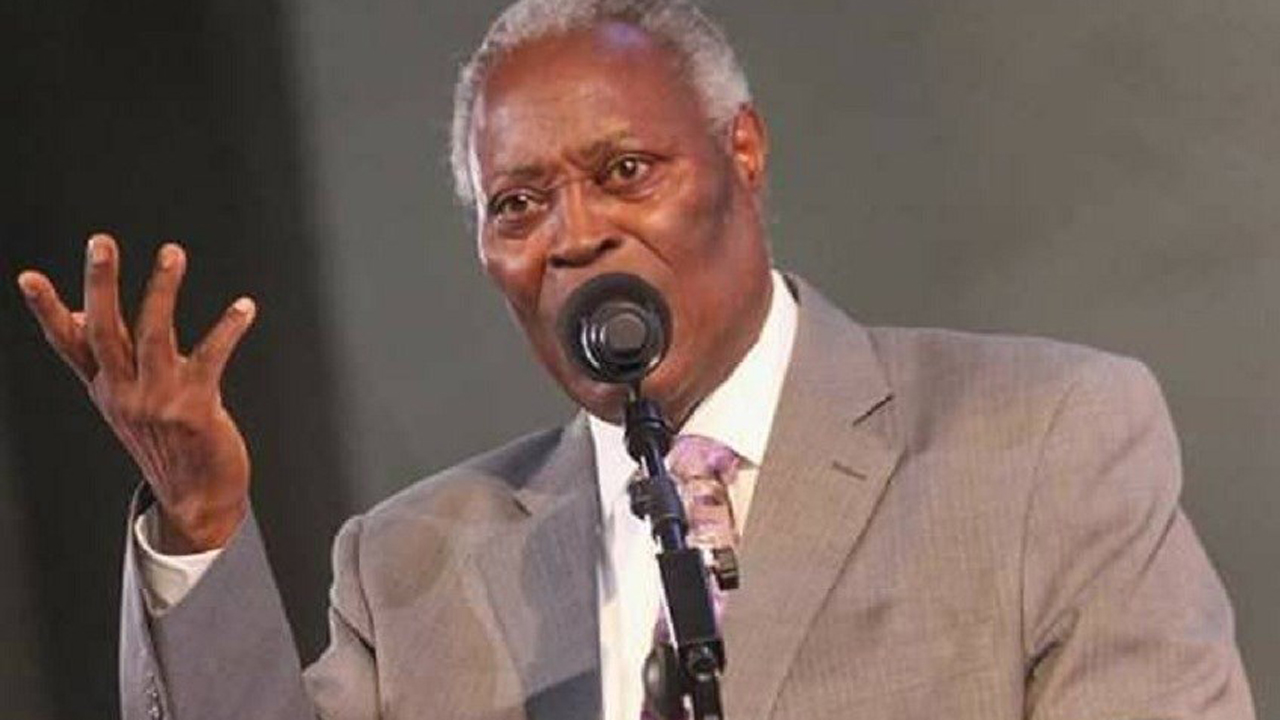
THE delivery of effective and efficient public service is a necessity in every modern society. Indeed, the primary purpose of government is the provision of services to citizens and assurance of security and welfare.
Every government strives to improve the quantity and quality of public service to its citizens.One way in which government tries to do this is to increase expenditure on public services. But there is a paradox in Nigeria. While the Federal Government has increased its expenditure over the years, the quality of public service has decreased.
For instance, the Federal Government expenditure increased by about 500 percent between 2000 and 2012, but the aggregate public service quality increased by only 1.9 percent based on the Mo Ibrahim Index of African Governance. This motivated us to conduct a research on the factors responsible for declining public service quality despite increased expenditure.
It is interesting to note that Federal Government expenditure increased from 701.1 billion naira to 4.2 trillion naira between 2000 and 2012. But there was a higher level of increase in the recurrent expenditure (seven-fold increase) than the capital expenditure (four-fold increase). The Federal Government expenditure on education and health sectors increased by 87.5 percent and 194 percent respectively between 2009 and 2014 but Nigerian ranking remained 126th and 142nd of the 148 countries ranked by the World Economic Forum’s Global Competitive Index in 2014.
In the education sector for instance, despite Federal Government increase in expenditure from 147.8 billion in 2009 to 493.5 billion in 2014, Nigeria still ranks low in key education indicators such as enrolment rate, completion rate and number of out of school children. In fact, Nigeria has the highest number of out of school children in the world estimated at 10.5 million.
Quality of service is very important and its measurement necessary. But historically, it has been difficult to measure public service quality. Luckily, in the past two decades, several indicators have been developed to capture public sector performance, which can be used as proxy for quality of service. Two popular indicators are the World Governance Indicators (WGI) produced by the World Bank and the Mo Ibrahim Indicators of African Governance.
The World Governance Indicators captures government performance along six dimensions: voice and accountability; political stability and lack of violence; government effectiveness; regulatory quality; rule of law and control of corruption. Nigeria scored below average in all the indicators between 2000 and 2011.
The Mo Ibrahim Indicators of African Governance captures provision of the political, social and economic goods that a citizen has the right to expect from his or her state and that a state has the responsibility to deliver to its citizen. Government performance under the index is measured along four dimensions: safety and rule of law; participation and human rights; sustainable economic opportunity and human development.
Our study shows that there are several factors responsible for the declining public service quality in Nigeria. The factors include poor planning; policy discontinuities, reversals and somersault; lack of participatory, open, transparent and inclusive budgeting; diversion of public funds; poor human resource management and poor performance management.  The challenges of Public Administration and the poor performance of the Public service is not a new problem in Nigeria. This is why there have been several efforts to reform the public service including but not limited to the Public Service Review Commission (The Udoji Commission, 1972-1974), the 1988 Civil Service Reforms and the 1994 Review Panel on Civil Service Reform (the Alison Ayida Panel).
The challenges of Public Administration and the poor performance of the Public service is not a new problem in Nigeria. This is why there have been several efforts to reform the public service including but not limited to the Public Service Review Commission (The Udoji Commission, 1972-1974), the 1988 Civil Service Reforms and the 1994 Review Panel on Civil Service Reform (the Alison Ayida Panel).
Despite these efforts, the public service quality has continued to decline. The literature is replete with the factors responsible for the failure of these reforms including lack of political will, poor management, faulty diagnosis, poor recruitment policies, lack of human resource capacity building, political patronage, quota system and lack of democratic practices in the management of the public service.
In Nigeria, it has been documented that right from the colonial period, development planning was viewed as a major strategy for achieving economic development and social progress, particularly, in the spheres of socio-economic infrastructures, industralisation, modernization, high rates of economic growth, poverty reduction, and significant improvements in living standards.
Three plans featured in the pre-independence era for the periods 1946-1956, 1951-1955 and 1955-1962. Over the 1962-1995 period, three major phases in the planning experience emerged, namely, the fixed medium-term planning phase (1962-1985), policy oriented planning (1986-1988), and three year rolling plan phase (1990 till date).
Scholars have pointed out that the golden period of planning on the African continent, 1960s and 1970s, could not be sustained from the 1980s because of two major factors: failure of development planning to meet the high expectations of rapid growth and development; and the resurgence of neo-liberalism and the implementation of short-term stabilization and structural adjustment programmes which are predicated on liberalization and deregulation.
Meanwhile, these programmes that substituted for national development plans are counter plans which have failed to solve Africa’s myriad of economic problems. This is why some scholars have referred to the 1980s and 1990s as the “lost development decades” for Africa.
The challenge is that since return to civil rule in 1999, there has been a lot of sporadic and adhoc planning without adherence to long term planning. The National Economic Empowerment and National Development Strategy (NEEDS) and the Seven Point Agenda was abandoned after a few years. It is worse at the sub-national levels. Between 2004 and 2007, all the states developed the State Economic Empowerment and Development Strategies (SEEDS). But since 2007, most state governments do not have overarching development strategies.
In addition, there is no systematic planning framework for the country that ensures that adequate data and research, good information system, monitoring and evaluation and tracking of results. The end result is abandonment of projects, poor plan implementation and poor service delivery.
Scholars are in agreement that strategies and policies are fundamental to progress and development of countries. But many Ministries, Departments and Agencies in Nigeria are without strategic plans. For many of them, policies have not been reviewed for over a decade. Even the implementation of the policies have been characterized by discontinuity, reversals and somersaults. Meanwhile, there is no process or criteria or mechanism for filtering policy ideas in the country. Policy proposals are often not evidence based because ideas that enter into the policy agenda are based on the private interest behind them. The result is that the policy ideas are not strategic and implementation do not give the desired result leading to wastage of resources due to duplication and failed programmes and projects.
In any case, there is some level of improvement in the budgetary process since the return to civil rule with increasing citizen participation. But there are still huge challenges including late passage, limited citizen participation, fiscal indiscipline and poor oversight by the legislature.
Another huge challenge is diversion of funds. Nigeria was ranked 142 out of 144 countries on the index of diversion of public funds on the World Economic Forum Index of official corruption. Finally, there is the challenge of human resource management and performance management. Human resource management in the public sector is characterized by weak incentive structure. There is a great difference between the real wages between the topmost level of public servants and the middle level/junior workers. In addition, there is a lot of favouritism. The World Economic Forum Global Competitive Report ranks Nigeria 125th out of 134 countries in the extent to which connected individuals and firms influence government policies and the award of contracts.
Performance management is the process of assessing and managing individual performance of workers. It requires supervisors to plan, explain, clarify, test for agreement, monitor and provide feedback. Performance management in the public sector is poor and ineffective.
From the above, it is clear that the provision of public service directly by government institutions or through creating enabling environment for private service providers involves processes and activities. Poor service delivery is primarily caused by problems in the service delivery process. This is why arresting the declining public service quality requires dealing with the problems in the service delivery process.
There is no doubt that the Nigerian public sector performance is weak despite increased public expenditure. It has been shown that the increased expenditure has not translated into service quality and performance. The missing link is poor public service delivery process. This is why the way out of the problem is a comprehensive Public Administration Reform to produce a public service that is efficient, effective, transparent and responsive. The public service processes that need reform are planning, policy making, budgeting, human resource management and performance management.
It is important to point out that the pattern of increasing expenditure and declining quality of services is probably worse at the subnational levels (State and local government). This is why the Public Administration Reform needed in Nigeria must be comprehensive covering all levels and tiers of government.
As we approach the 2015 general elections, all the politicians are making promises to improve public service quality. It is clear to us that the politician or political party that will be best suited to deliver quality services to Nigerians will be the one with the best strategy to address the poor public service delivery process. This is why citizens must demand from politicians and political parties a clear strategy, programme and action plan to improve public service delivery process and address the factors responsible for declining public service quality in Nigeria.
• Dr. Otive Igbuzor PhD is Executive Director, African Centre for Leadership, Strategy & Development (Centre LSD)





